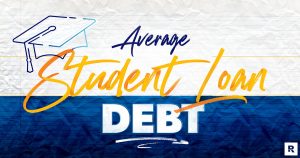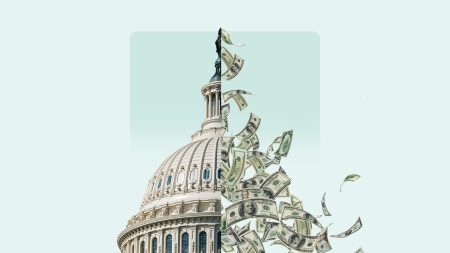Key takeaways
- Defaulting on a loan means that you’ve violated the promissory note or cardholder agreement with the lender to make payments on time.
- Filing for bankruptcy, on the other hand, is a legal process that involves listing your debts and assets and finding a way to resolve the debts.
- Default and bankruptcy usually go hand in hand. Borrowers may default on their loans and then subsequently file for bankruptcy.
Walking away from your debt, also known as defaulting, could seem like your best option if you’re struggling to keep up with bills. However, walking away from debt won’t solve all of your problems. Your lender can still try to sue you for the remaining amount or sell the loan to a collection agency. If you want to wipe the slate clean, bankruptcy could be a viable alternative.
Should I declare bankruptcy or walk away from my debt?
When deciding which route makes the most sense financially and personally, consider that defaulting on a loan and filing for bankruptcy are not opposite choices. In fact, Jay Fleischman of Money Wise Law recommends defaulting on a loan before filing for bankruptcy.
If you default, filing for bankruptcy can protect your assets from being seized by creditors. It can also protect you from having future wages or an inheritance garnished. “Bankruptcy is useful not only for protecting what you have, but also for protecting your future,” Fleischman says.
Before you consider either, allow yourself the time to work on improving your financial situation.
What happens if I default?
Defaulting on your debts, whether it’s a loan, credit card or another form of credit, can result in a variety of consequences, including legal action being taken against you. Here are some of the most common outcomes for those who default.
Debt is sold to a collection agency
When you default on a loan, the debt is often sold to a collection agency, which will then try to collect the amount owed. This process can cause a lot of frustration as the collection agency will continue to reach out to get the unsettled debt. If you are in this scenario, make sure that the debt is in fact yours and that the debt hasn’t surpassed your state’s statute of limitations.
Unfortunately, scammers also take advantage of debt anxieties, and debt collection scams are common. These scammers likely restrict available information, call late at night and may even threaten jail time. The Fair Debt Collection Practices Act (FDCPA) protects you from this sort of communication. It prohibits any communication between 9 p.m. and 8 a.m., and debt collectors cannot contact you at work or contact others about your debt.
Lender sues you
Another daunting result of defaulting on your loan can be a lawsuit brought forth by your lender. A lender will try to sue you in an attempt to garnish your wages or even try to put a lien on your house to collect some of the profits when you sell the home.
If you find yourself involved in a lawsuit, it is crucial that you do not ignore any summons or legal obligations. In most cases, the judge will take the debt collector’s side, which will lead to future financial issues.
Connect with a lawyer — these types of court proceedings can be challenging to handle on your own. Responding to the lawsuit does not mean that you are holding yourself culpable. Instead, you are agreeing to a conversation, and ideally, you and your lender or debt collector can find a settlement or resolution.
Credit score impact of defaulting
A default will remain on your credit report on your credit report for seven years. It can make it very difficult to qualify for another loan or credit card in the future.
You may also lose any collateral you used to secure the loan. Secured debt uses an asset as collateral, which can be repossessed if you default. Unsecured debt has no collateral, but you can still be taken to court. The lender or debt collector may attempt to place a lien on your home or garnish your wages to recoup its losses.
What happens if I file for bankruptcy?
Filing for bankruptcy after you’ve defaulted can protect your assets from being seized by the lender or creditor. How it works depends on the type of bankruptcy you file.
Chapter 7
In a Chapter 7 bankruptcy, the court will decide which of your assets to sell in order to repay your creditors. Any remaining debt will be discharged, except for student loans, child support, taxes and alimony. This type of bankruptcy will stay on your credit report for 10 years.
“When you file for Chapter 7 bankruptcy, it’s known as a fresh start. You can discharge all your unsecured debts so that you’re no longer liable for them,” says Katie Ross, executive vice president of the nonprofit American Consumer Credit Counseling.
The court will appoint a trustee who may liquidate or sell some of your possessions to pay your creditors. While most of your debt will be canceled, you might choose to pay some creditors with a lien on your car or home in order to keep them, says Ross.
Chapter 13
If you file for Chapter 13, you may be able to keep more of your assets while discharging some of your debts. The debt that is not discharged will be put on a three- to five-year repayment plan. This will stay on your credit report for seven years.
“Chapter 13 is about reorganizing financial affairs,” says Michael Sullivan, personal financial consultant with the nonprofit debt counseling company Take Charge America. “A consumer filing for Chapter 13 will have to live on a very strict budget to maximize the payment plan payout to creditors. It works a lot like a debt management plan where there’s a single payment made to a trustee.”
Credit score impact of bankruptcy
Your credit score will likely go down significantly if you file for bankruptcy — by at least 130 points, but sometimes by as much as 200 points or more. If you work in an industry where employers check your credit as part of the hiring process, it may be more difficult to get a new job or be promoted after bankruptcy.
Fleischman says that if you have credit cards, they will almost always be closed as soon as you file for bankruptcy. Getting another loan or credit card will also be very difficult in the early stages after bankruptcy. As time goes on, bankruptcy will affect your score less — if you’re responsible with your credit.
Other options for dealing with debt
Bankruptcy and defaulting on a loan should not be your first strategies if you have debt. Before you go to those extremes, see if another option for getting out of debt will work for you.
Balance transfer credit card
If you have credit card debt on a card with a high APR, try transferring the balance to a card that offers 0 percent APR. This lets you pay down the balance without being charged any interest.
These special APR offers tend to last between 12 and 20 months, depending on the card’s terms. When the offer is over, a regular interest rate will kick in, so it’s best to make as many payments as possible during the introductory period.
Using a balance transfer credit card to address debt can both help and hurt your overall credit score. It can help your score by reducing your overall credit utilization ratio, the amount of your available credit in use, which accounts for 30 percent of your credit score.
“If you add more available credit without increasing the total amount of debt you owe, that lowers your credit utilization rate, which increases your credit score,” Sullivan says. “So, if you do a balance transfer and keep the old cards open but do not use them, your credit score will start to improve.”
However, opening a new credit card can also have a minor negative impact your credit score. Opening a new credit card can also reduce the average age of the accounts on your credit profile, which may cause your score to decline.
Debt consolidation
A debt consolidation loan is a personal loan that you use to pay off other debt, usually from credit cards. Debt consolidation loans typically have low fixed interest rates and terms lasting between one and seven years. Because debt consolidation loans typically have lower interest rates than credit cards, they are a cheaper way to repay high-interest credit card balances.
Debt consolidation loans may cause your credit score to dip initially because of the hard credit inquiry that will be required to apply for the loan. However, over time this approach to addressing debt may also improve your score if you consistently make on-time payments on the loan. Your payment history is one of the most significant factors in your credit score, accounting for 35 percent.
However, they can be difficult to qualify for, so consider debt consolidation alternatives when considering this option.
Hardship plans
You may be able to significantly decrease your monthly payments by negotiating a payment arrangement or entering into a hardship plan. Call your lender’s billing office, explain your financial situation and try to negotiate a lower monthly payment.
If you’re dealing with medical debt, nonprofit hospitals are required to offer relief plans for financial hardship. Other medical providers may also offer relief on your bills or debts through a payment plan.
“Trying to negotiate lower monthly payments with your provider for your medical debt will not impact your credit score if you pay on time and pay the full amount of debt you owe,” Ross says. “If the monthly payments are lower and easier to manage, there’s less chance that you’ll miss a payment. So, it could indirectly have a positive impact on your credit score.”
Debt management plans
A debt management plan can also help you resolve overwhelming debt. It involves a credit counselor reaching out to your creditors to negotiate concessions on your behalf in hopes of making your balances more manageable. Once the plan is in place, you’ll make a single payment to a trustee each month, who will then distribute the funds to your creditors per the plan’s terms.
Debt management plans are limited to unsecured debts, and there are no guarantees that your creditors will participate. You generally also have to close your credit cards before entering into a debt management plan.
The upside is you can get a better handle on your balances by focusing on those that do qualify. It should also help you streamline the debt payoff process, potentially save in interest and help you avoid bankruptcy.
Student loan relief options
Bankruptcy won’t discharge student loan debt. However, there are options to make your payments more manageable.
Borrowers with federal student loans can pursue deferment or forbearance for up to three years total. Depending on the type of student loans you have and the type of relief you choose, interest may still accrue during this time. Deferment and forbearance won’t impact your credit score, but both will be noted on your credit report.
Another option for federal borrowers is to switch to an income-driven repayment plan with a loan forgiveness option. This will extend your repayment timeline, and because the plan bases your student loan payments on your actual income, your monthly payment may be as low as $0. This approach doesn’t require a credit check to help you avoid a drop in your credit score.
If you have private student loans, you may still be eligible for deferment or forbearance. This depends on the lender. If you’re facing financial hardship, call your lender and ask about your options. Deferment programs through private lenders may impact your credit score and could mean paying more in interest over the life of the loan.
Next steps
If you haven’t defaulted on your loans yet, you still have time to consider other options. Your first step should be to contact your lenders and explain that you’re struggling with the monthly payments. You can also look into local government assistance programs and credit counseling.
Once you have exhausted those options, some financial experts recommend defaulting on your loan ahead of filing for bankruptcy. This way, you can better protect your assets from creditors.
Read the full article here










